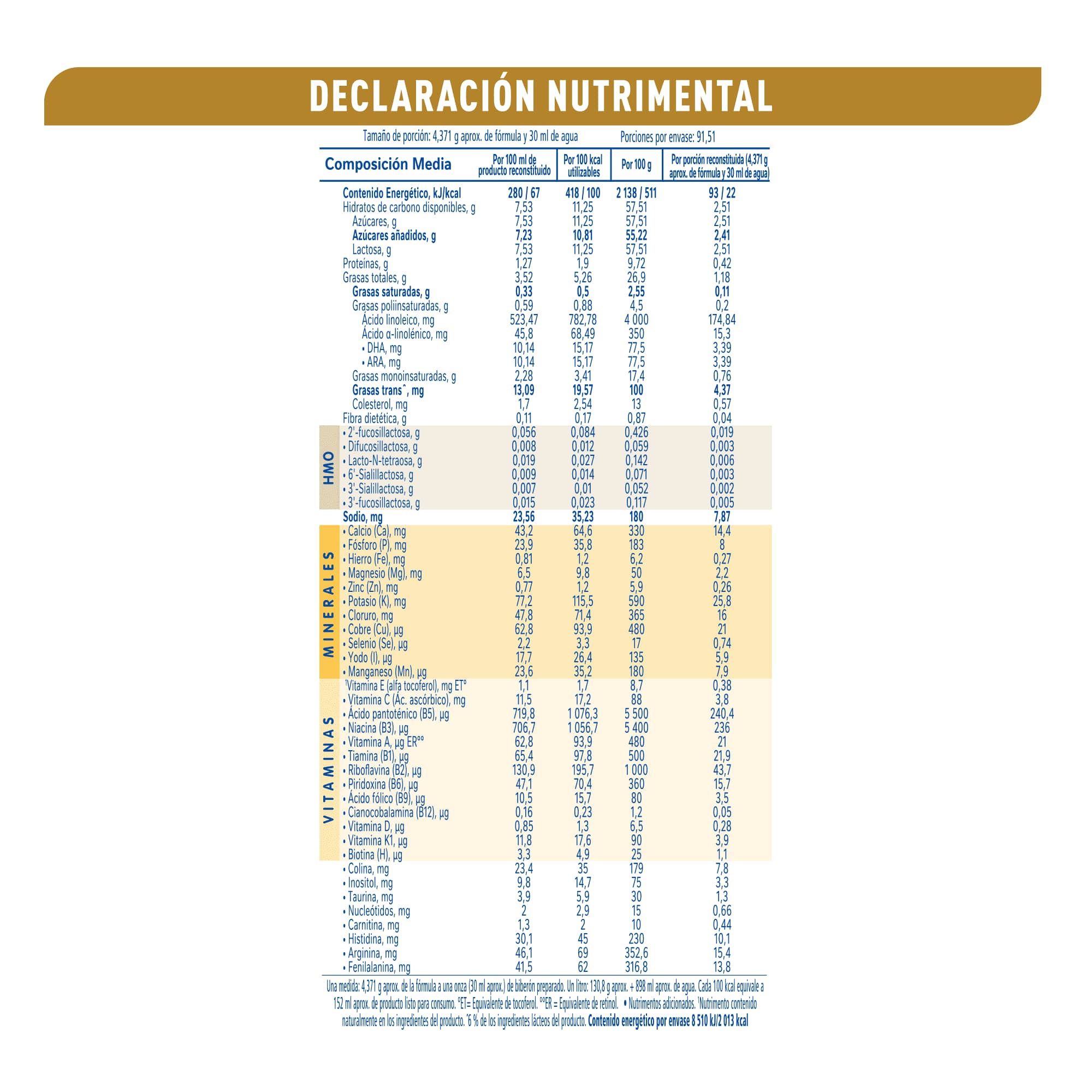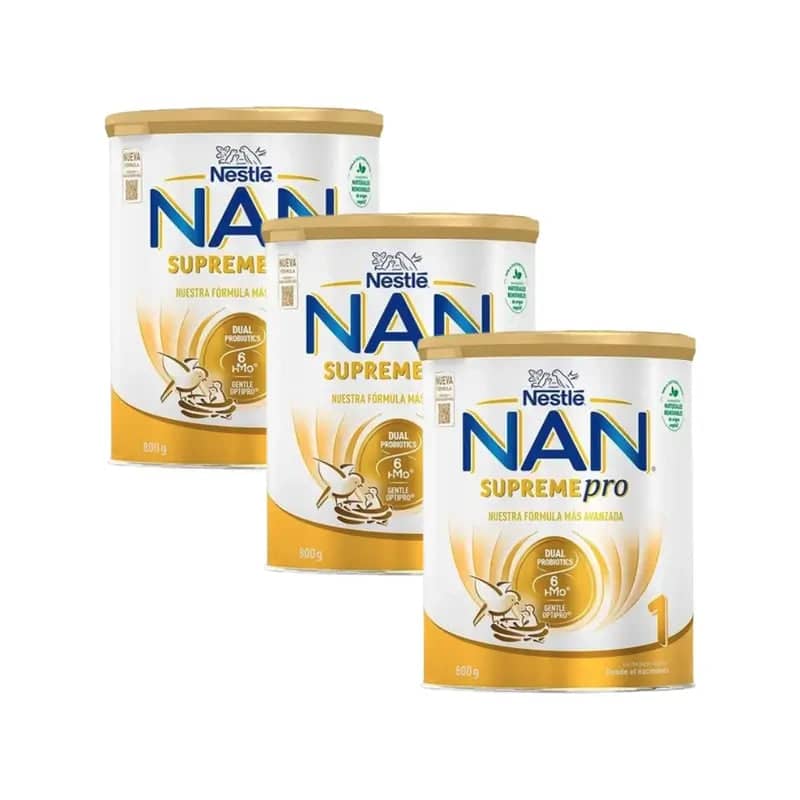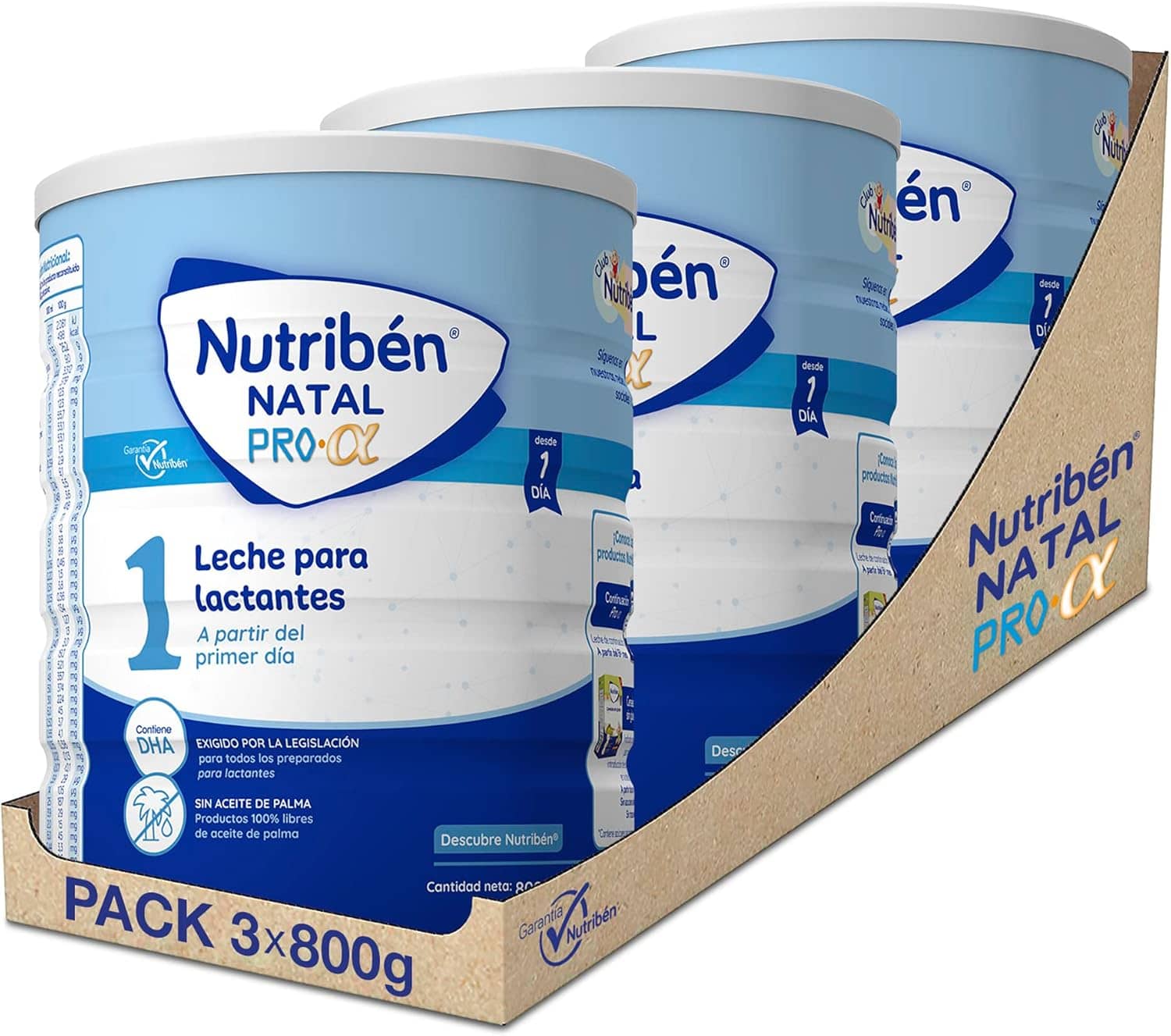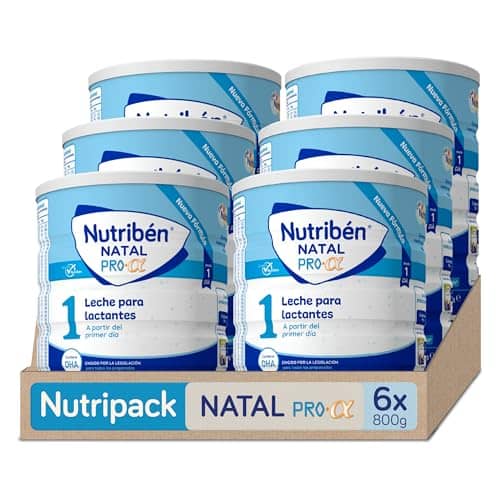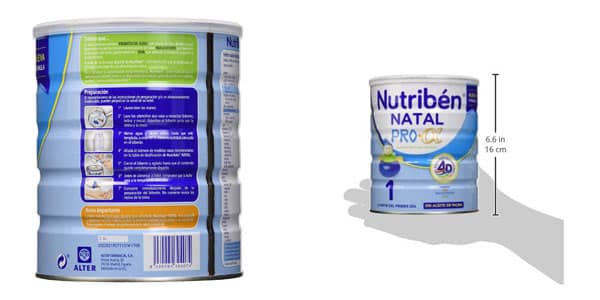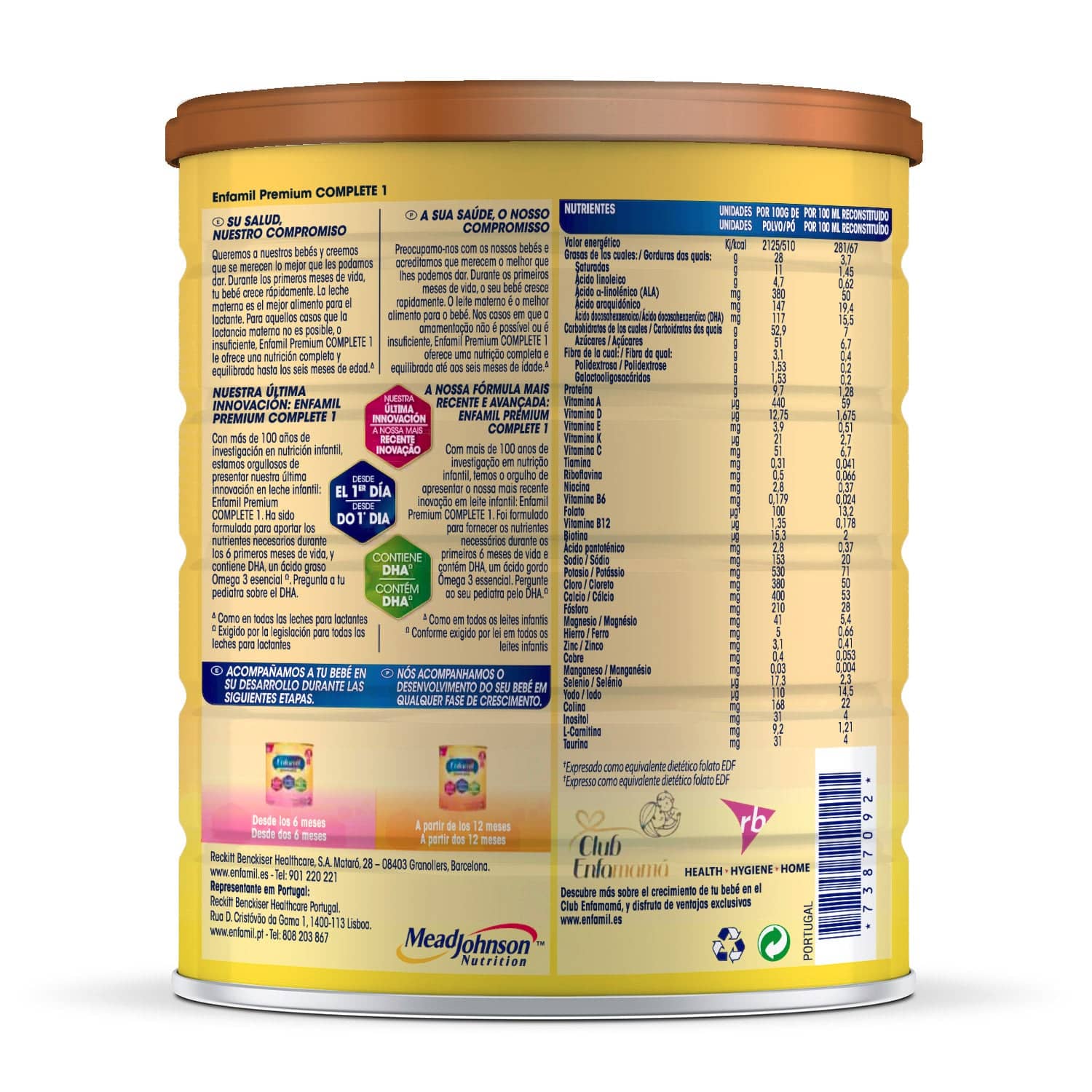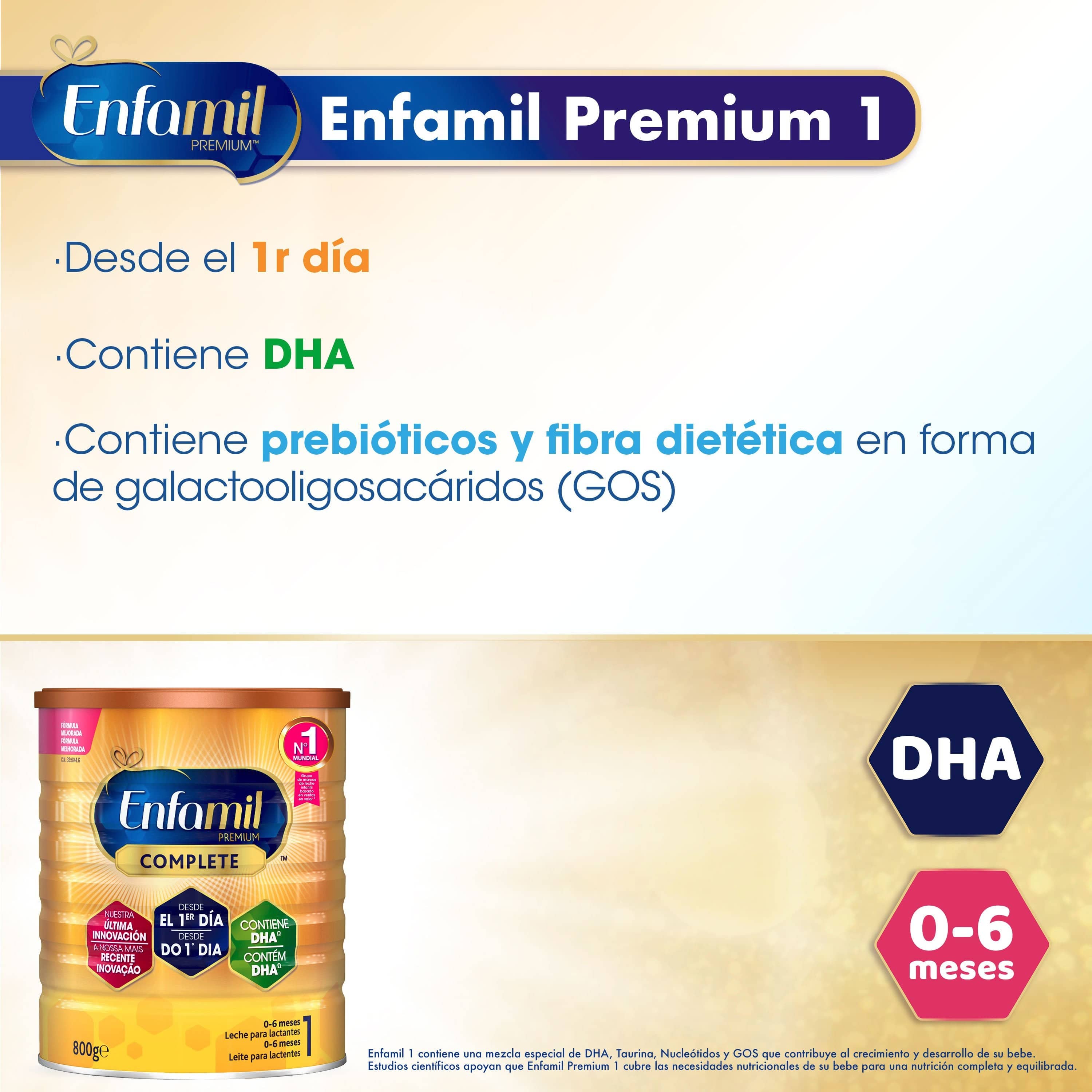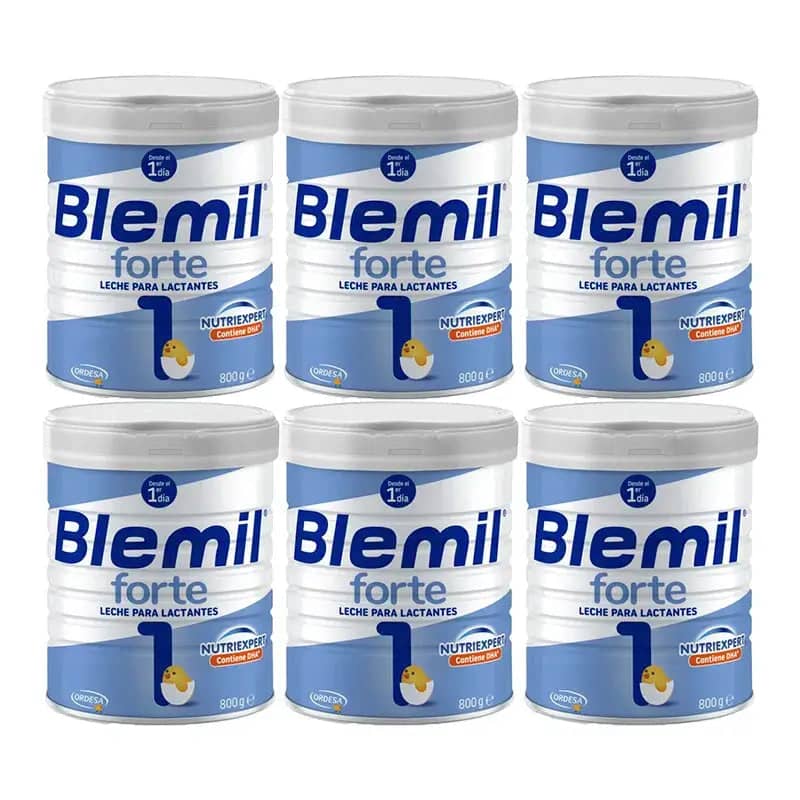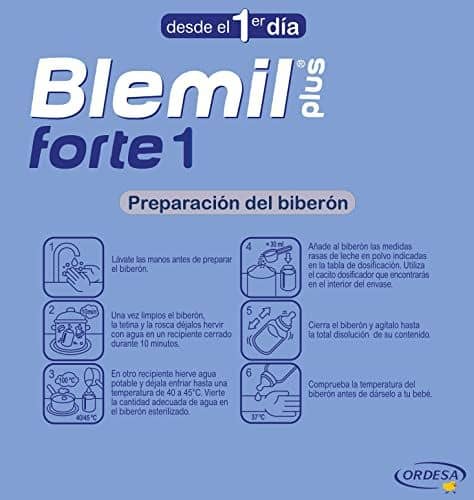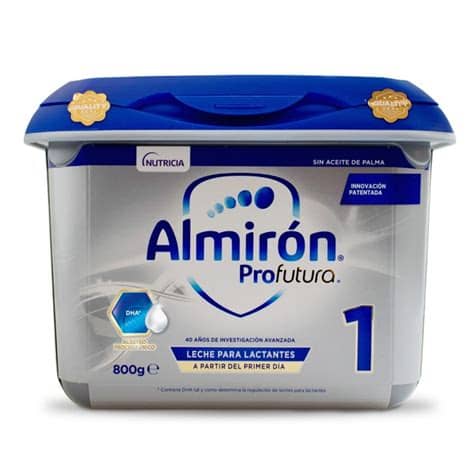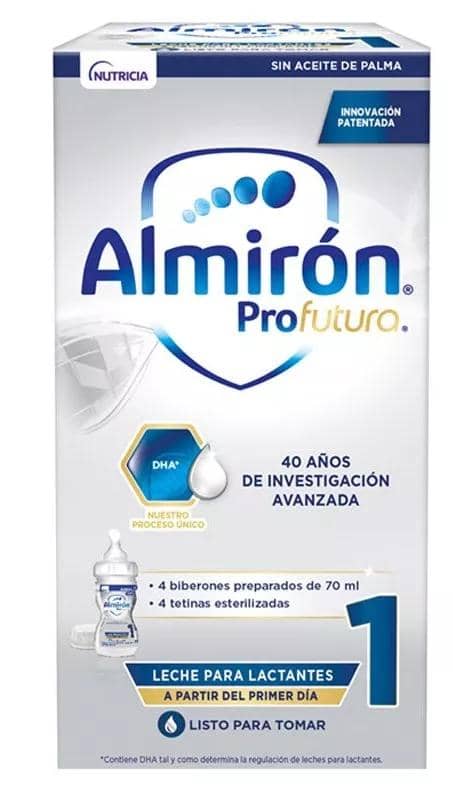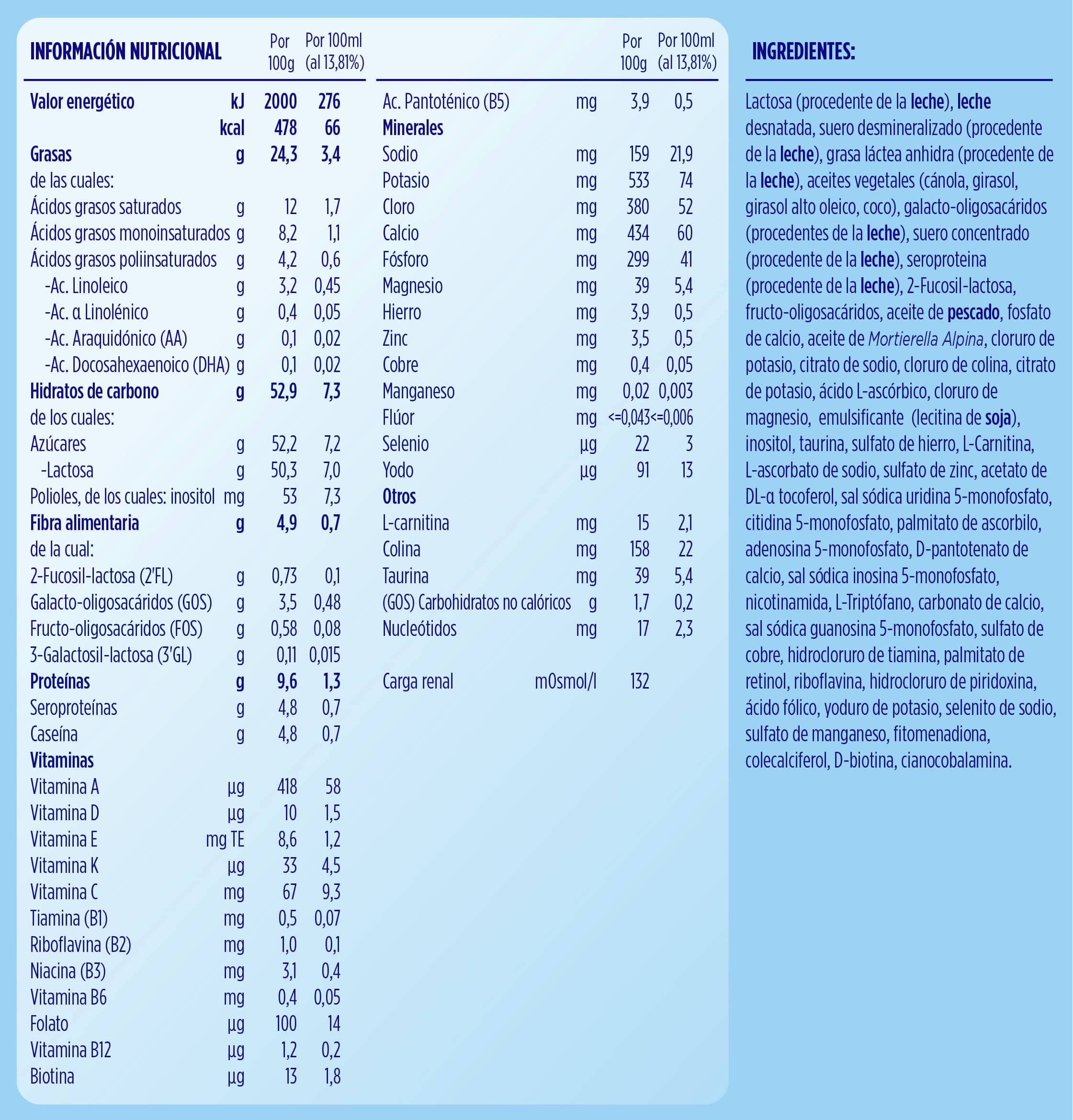The 5 Best Infant Formulas 2025: Buying Guide and Comparison
Published content: July 28, 2025
The arrival of a baby is a moment of immense joy and profound changes. Amidst the euphoria and adjustment to a new routine, one of the most crucial and often stressful decisions for new parents is how to feed their little one. While breastfeeding is the ideal and universally recommended option by health professionals, it is not always possible or sufficient for all families. It is in these scenarios that infant formulas become a safe and nutritionally complete alternative, designed to supplement or complement the needs of babies from birth up to 12 months. Choosing the right formula in a market saturated with options can be an overwhelming task, full of questions and doubts about what will be best for our child's well-being and optimal development.
In the vibrant year 2025, the science of infant nutrition continues to advance by leaps and bounds, offering increasingly sophisticated formulas that seek to emulate the benefits of breast milk. It's no longer just about providing basic nutrients; modern formulas strive to incorporate bioactive components, prebiotics, probiotics, and essential fatty acids like DHA and ARA, which play a fundamental role in the cognitive, visual, and immunological development of the infant. However, this constant evolution also means that the offer is vast, and the characteristics of each product can vary significantly, making the choice more complex.
The purpose of this comprehensive guide is to demystify the selection process and offer parents a clear and reliable roadmap for making an informed decision. We have analyzed and selected the 5 most popular and highly-rated infant formulas in the current market, based on sales criteria, brand recognition, formulation innovation, and the trust they generate among families and professionals. Our focus is not just to list products, but to delve into what makes each one special, for which type of infant it is most suitable, and what specific benefits it provides. We want you to feel empowered by the end of this reading to choose the formula that best adapts to your little one's particular needs, without falling for misinformation or misleading advertising.IMAGEN_C
Beyond popularity, it is essential to understand that every baby is unique. What works wonderfully for one might not be ideal for another. Factors such as digestive sensitivities (colic, gas, constipation, regurgitation), allergy risk, or simply the baby's preferences, play a crucial role in the choice of infant formula. Therefore, this guide will not only present you with leading options but also offer tools and knowledge to interpret labels, understand key ingredients, and, most importantly, know when and how to consult a healthcare professional. The decision to change or start a formula for your infant should always go hand in hand with a pediatrician, who is the only one who can offer a personalized recommendation based on your child's clinical history and specific needs.
Throughout this article, we will explore in detail the characteristics that make an infant formula "good," from the balance of macronutrients (proteins, fats, carbohydrates) to the presence of micronutrients (vitamins and minerals) and other functional components. We will analyze the differences between starter formulas and follow-on formulas specifically designed for infants, as well as those adapted for special needs (such as anti-colic or hypoallergenic formulas for this stage). We will provide valuable information on how to prepare them correctly, how to store them, and what signs to look for that indicate a formula is not suiting your baby well. Our commitment is to provide you with a complete, objective, and updated resource so that your infant's feeding is a source of peace of mind and confidence, not worry.
In the first section, we will delve into the Analysis of the Best Infant Formulas of 2025, where we will break down each of the 5 selected options, with their pros, cons, and for whom they are recommended. Subsequently, we will address key aspects in our Infant Formula Buying Guide, which will equip you with the knowledge to choose wisely. Finally, the Frequently Asked Questions section will resolve the most common doubts that arise among parents. Get ready to empower yourself with quality information and make the best decision for your infant's nutrition, ensuring a healthy and happy start to life.
Important note: The choice of formula milks is based on popularity and sales trends on leading platforms, not on medical recommendation. A pediatrician should always be consulted before choosing or changing a baby's formula milk, as each child has specific nutritional and health needs. Product names are representative examples of popular categories but not necessarily the exact best-sellers at any given time due to market fluctuation.
Analysis and Reviews of the Best Infant Formulas of 2025
If you're looking for the best infant formula for your baby, let me tell you that the choice should not be taken lightly. Every tiny tummy is unique, and what works wonderfully for one baby might not be the most suitable for another. Infant formulas are designed to meet specific needs, and understanding their qualities is crucial before making a decision. But don't worry, because we have compiled an exhaustive list of the most outstanding and popular infant formulas of 2025, based on their quality, nutritional composition, and the trust they inspire. Take a few minutes to read this detailed analysis and find the nutrition model your little one needs.
1. Nestlé NAN Supreme Pro 1 Infant Milk
Infants from birth to 6 months who are not breastfed or require supplementation, especially those with digestive sensitivity or parents who wish to provide a formula with advanced benefits for immune and brain development.
Nestlé NAN Supreme Pro 1 is positioned in 2025 as one of the leading infant formulas for feeding babies from birth to six months of age. Its innovative formulation is the result of exhaustive research, seeking to get as close as possible to the complexity and benefits of breast milk, especially regarding digestibility and immune system development. This formula not only provides the essential nutrients for adequate growth but also incorporates key bioactive components that distinguish it in the market.
One of the most notable features of Nestlé NAN Supreme Pro 1 is the inclusion of two types of human milk oligosaccharides (HMOs): 2'-Fucosyllactose (2'-FL) and Lacto-N-Neotetraose (LNnT). HMOs are the third most abundant solid component in breast milk and play a crucial role in the development of a healthy gut microbiota and in strengthening the infant's immune system. They are not digestible by the baby but act as prebiotics, feeding beneficial bacteria such as bifidobacteria, which helps prevent infections and allergies. Their presence in this infant formula is a major advancement in infant nutrition, seeking to replicate one of the most important functions of breast milk.IMAGEN_R
In addition to HMOs, Nestlé NAN Supreme Pro 1 incorporates partially hydrolyzed proteins. This hydrolysis process breaks down milk proteins into smaller fragments, making them easier for the infant's immature digestive system to digest. This feature is especially beneficial for babies who may have greater digestive sensitivity, helping to reduce the incidence of gas, colic, and other discomforts. Improved digestibility translates into greater comfort for the baby after feedings and better nutrient absorption.
The lipid profile of this infant formula includes DHA (docosahexaenoic acid) and ARA (arachidonic acid), long-chain polyunsaturated fatty acids that are vital for optimal brain and vision development. These lipids are fundamental during the first months of life when brain growth is most rapid. The formulation of Nestlé NAN Supreme Pro 1 ensures that the infant receives an adequate supply of these essential nutrients, supporting their long-term cognitive and visual development.
Regarding carbohydrates, lactose is the primary source, mimicking the composition of breast milk. This formula is carefully fortified with a wide range of vitamins and minerals, including iron for anemia prevention, calcium and vitamin D for bone development, and other essential micronutrients that ensure all the infant's nutritional needs are met. The quality and safety of the ingredients are a priority for Nestlé, and NAN Supreme Pro 1 complies with the strictest European and international regulations for infant feeding.
The preparation of Nestlé NAN Supreme Pro 1 is simple; the powder dissolves easily in warm water, forming a homogeneous solution without lumps. Clear instructions on the packaging facilitate precise dilution, essential for the formula's safety and effectiveness. The packaging presentation, often with a compartment for the measuring spoon, contributes to hygiene and ease of use.PHRASE_C
Confidence in Nestlé NAN Supreme Pro 1 is reflected in the numerous positive reviews from parents who highlight improved digestive tolerance and fewer colics in their babies after switching to this formula. Its comprehensive approach to digestion, immunity, and brain development makes it a premium choice for parents looking for an infant formula that goes beyond the basics, offering advanced nutritional support for a healthy start to life.
PROS
CONS
2. Nutribén Natal Pro Alfa 1 Infant Milk
Babies from birth to 6 months of age who are not exclusively breastfed, or as a supplement to breastfeeding, and who are looking for a formula with a complete nutritional profile and components that support cognitive and immunological development.
Newborn feeding is a period of adaptation and discovery, both for the baby and the parents. When exclusive breastfeeding is not an option or supplementation is required, choosing the right formula becomes a priority. Nutribén Natal Pro Alfa 1 Infant Formula stands as one of the most reliable and complete options on the market, specifically designed to meet all the nutritional needs of babies from birth to six months of age. Its advanced formulation aims to emulate, as much as possible, the composition of breast milk, providing comprehensive support for development at this crucial stage.
One of the cornerstones of the Nutribén Natal Pro Alfa 1 formula is its nutritional balance. It contains a carefully adjusted proportion of whey proteins and casein, similar to what is found in breast milk, which facilitates optimal digestion for the newborn's still immature gastrointestinal system. This balanced protein ratio helps reduce the digestive load and promotes better absorption of essential nutrients. Furthermore, its carbohydrate profile is primarily based on lactose, the natural milk sugar, which is the preferred energy source for infants.
Nutribén Natal Pro Alfa 1 is enriched with bioactive components that go beyond basic nutrients. It stands out for the inclusion of DHA (docosahexaenoic acid) and ARA (arachidonic acid), two long-chain polyunsaturated fatty acids that are crucial for brain and retinal development. Numerous scientific studies support the importance of these lipids in the early stages of life, as they contribute to cognitive development, visual acuity, and neuronal function. Their presence in the formula ensures that bottle-fed babies receive these vital components for optimal intellectual growth.IMAGEN_C
Additionally, this formula incorporates nucleotides, which are the building blocks of DNA and RNA. These compounds are not only essential for cell growth and division but also play a significant role in the maturation of the baby's immune system, strengthening their natural defenses against infections. Their inclusion reflects Nutribén's commitment to holistic development, not only physical but also immunological. Another relevant functional component is prebiotics (GOS), which promote the growth of healthy intestinal flora. A balanced microbiota is fundamental for good digestion, nutrient absorption, and modulation of the immune response, contributing to the reduction of problems such as colic and gas.
The manufacturing of Nutribén Natal Pro Alfa 1 follows strict quality and food safety controls, which gives parents peace of mind. The brand has a long history in infant nutrition, and its products undergo rigorous research and development processes. This ensures that every batch of formula meets the highest standards of quality and purity. Ease of preparation is another plus, as the powder dissolves quickly in warm water, without lumps, simplifying the lives of busy parents. Clear dosing instructions on the packaging ensure accurate preparation, always providing the correct concentration of nutrients. Trust in the brand and ease of use are key for parents.
The Nutribén Natal Pro Alfa 1 packaging is also designed for convenience and product preservation. The hermetically sealed can helps preserve the freshness and nutritional properties of the formula once opened, if stored correctly in a cool, dry place. It is essential to always follow hygiene guidelines when preparing feeds, using boiled and cooled water, and consuming freshly prepared formula to avoid any risk of bacterial contamination.PHRASE_C
In summary, Nutribén Natal Pro Alfa 1 Infant Formula is an excellent choice for parents seeking a high-quality starter formula for their newborns. Its complete nutritional composition, enriched with DHA, ARA, nucleotides, and prebiotics, makes it a fundamental pillar for the physical, cognitive, and immunological development of the baby in their first six months of life. It is a formula that not only feeds but also nourishes integrally, contributing to overall well-being and a healthy and happy start to life.
PROS
CONS
3. Enfamil Premium Complete 1 Infant Milk
Infants from birth to 6 months who are not breastfed or require supplementation, especially for parents who want a formula that prioritizes cognitive and visual development.
Enfamil Premium Complete 1 remains in 2025 as one of the leading infant formulas, recognized for its strong emphasis on brain and visual development from birth to six months. Enfamil has been a pioneer in incorporating key nutrients into its formulas, and Premium Complete 1 is a testament to its commitment to advanced nutrition, especially concerning infant neuroscience. This formula is designed to provide a solid nutritional foundation that supports overall growth, with a particular focus on the infant's intelligence and visual function.
The most prominent distinction of Enfamil Premium Complete 1 is its optimized level of DHA (docosahexaenoic acid) and ARA (arachidonic acid), along with the inclusion of Choline. These components are fundamental for the formation of brain and retinal cell membranes, and are crucial during the rapid neuronal development that occurs in the first months of an infant's life. Enfamil has historically distinguished itself through extensive research on the role of DHA in cognitive development, and its Premium Complete 1 formula reflects this legacy, seeking to replicate the proportion of these lipids found in breast milk. Choline, for its part, is a precursor to acetylcholine, an important neurotransmitter for memory and learning.
In addition to its focus on brain development, Enfamil Premium Complete 1 offers a complete and balanced nutritional profile. It contains an adequate mixture of proteins (whey and casein), carbohydrates (mainly lactose), and a blend of vegetable oils that provide healthy fats. It is fortified with a wide range of essential vitamins and minerals, such as iron (fundamental for preventing anemia and cognitive development), calcium and vitamin D for strong bones, and other necessary micronutrients for the infant's growth and optimal immune system function.IMAGEN_L
The Enfamil brand is characterized by its rigorous quality control and high safety standards, complying with the most demanding global regulations. This provides parents with the peace of mind that they are offering their babies an infant formula that has undergone extensive testing and is safe for consumption. Ease of preparation is also a key point; the powder dissolves smoothly in warm water, allowing for quick and efficient bottle preparation, a highly valued detail in the daily hustle with a newborn.
Enfamil's reputation has been built on decades of research in infant nutrition and the support of healthcare professionals. Many pediatricians recommend Enfamil Premium Complete 1 for its focus on cognitive development and the consistency of its quality. Testimonials from parents often highlight how their babies adapt well to the formula and show healthy development. For parents who prioritize robust nutritional support for their infant's brain and vision, Enfamil Premium Complete 1 is an option that inspires confidence and offers tangible results.PHRASE_C
In summary, Enfamil Premium Complete 1 Infant Formula is a highly recommended starter formula for those seeking to optimize their baby's brain and visual development. Its composition rich in DHA, ARA, and Choline, along with a complete nutritional profile, makes it a leading option for providing an intelligent and healthy start to your infant's life. It offers quality nutrition that comprehensively supports the baby's growth and learning potential.
PROS
CONS
4. Blemil Plus 1 Forte
Infants from birth to 6 months. Ideal for parents looking for a formula that enhances the development of the baby's immune system.
Blemil Plus 1 Forte is one of the most advanced starter formulas on the market, standing out for its focus on immunonutrition, that is, nutrition designed to strengthen the baby's immune system. Developed for infants from birth to 6 months, this formula is inspired by breast milk to provide optimal protection and development.
The most innovative component of Blemil Plus 1 Forte is its combination of whey proteins rich in lactoferrin, lactalbumin, and immunoglobulins. These bioactive compounds, naturally present in colostrum and breast milk, have a crucial function in defending the body against pathogens. Lactoferrin, in particular, is a multifunctional protein with antimicrobial and antiviral properties, which helps protect the baby from infections. Its inclusion in this formula is a major advance in infant nutrition and a clear differentiator for the brand.IMAGEN_L
The formula also features a blend of prebiotics (FOS and GOS) and probiotics (Bifidobacterium lactis), which work in synergy to modulate the gut microbiota. A healthy gut flora is the cornerstone of a strong immune system and good digestive health, and Blemil Plus 1 Forte actively works on this front. Parents who choose this formula often notice a remarkable improvement in their babies' digestive tolerance and a lower incidence of colic.
In addition to immune support, Blemil Plus 1 Forte contains DHA and ARA, the long-chain polyunsaturated fatty acids that are essential for cognitive and visual development. It is also enriched with nucleotides, which contribute to the development of the intestinal barrier and the maturation of the immune system. The formula is designed to be easily digestible, which avoids overloading the baby's gastrointestinal system.PHRASE_C
In summary, Blemil Plus 1 Forte is a high-end formula for parents who don't want to leave anything to chance when it comes to their baby's health. Its combination of immunomodulatory and nutritional ingredients makes it one of the most complete and protective options on the market. It is a product that inspires confidence and offers a solid foundation for the baby to grow strong, healthy, and protected from day one.
PROS
CONS
5. Almirón ProFutura 1
Infants from birth to 6 months. It's an excellent option for parents looking for a formula that enhances their baby's immune system and digestive health.
Choosing infant formula is one of the most significant decisions parents make for their newborn's well-being. In this context, Almirón ProFutura 1 has positioned itself as one of the most advanced and reliable options on the market, thanks to its deep research and commitment to nutrition that resembles breast milk. This formula is designed to meet all the nutritional needs of infants from birth to six months.
One of the most innovative features of Almirón ProFutura 1 is the inclusion of Human Milk Oligosaccharides (HMOs). These components, found naturally in breast milk, are not digestible by the baby but play a crucial role as food for beneficial gut bacteria. By acting as prebiotics, HMOs help establish a healthy gut microbiota, which is a fundamental pillar for the development of the baby's immune system and for efficient digestion. The formula contains a specific GOS/FOS blend that further enhances this effect, contributing to a gut flora similar to that of breastfed babies.
Furthermore, the Almirón ProFutura 1 formula stands out for its commitment to ingredient quality. One of the main advantages, highly valued by parents, is that this formula is completely palm oil-free. This decision, backed by scientific studies, has been shown to improve the absorption of calcium and other essential minerals, which contributes to better bone development and a reduction in constipation. The stools of babies fed with this formula tend to be softer, which increases their digestive comfort.
Of course, the formula also includes the long-chain polyunsaturated fatty acids DHA and ARA, which are crucial for brain and retinal development. Almirón ensures that these components are present in the right proportions to support the baby's neurological growth during this vital stage. The combination of HMOs, DHA, and the prebiotic blend makes Almirón ProFutura 1 an exceptionally complete formula for the baby's comprehensive development.
The Almirón brand, with its vast experience in infant nutrition, ensures that every batch of its product meets the highest standards of safety and quality. The powder presentation of Almirón ProFutura 1 is easy to prepare, dissolves without lumps, and has a taste that babies readily accept. In short, Almirón ProFutura 1 is not just food, but an investment in your child's health and future, offering advanced nutrition and unmatched immune and digestive support from day one.
PROS
CONS
Comparison of baby formulas
1. Nestlé NAN Supreme Pro 1 Infant Milk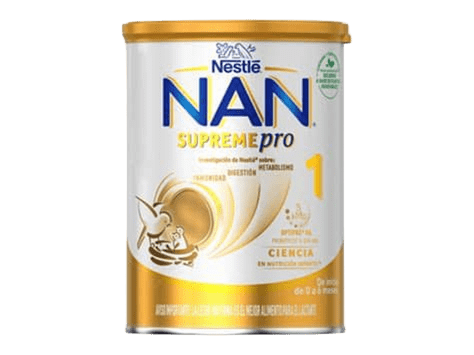 | Contains HMOs (2'-FL and LNnT) Partially Hydrolyzed Proteins Higher Price Slightly Different Taste | Higher Price Slightly Different Taste | |
2. Nutribén Natal Pro Alfa 1 Infant Milk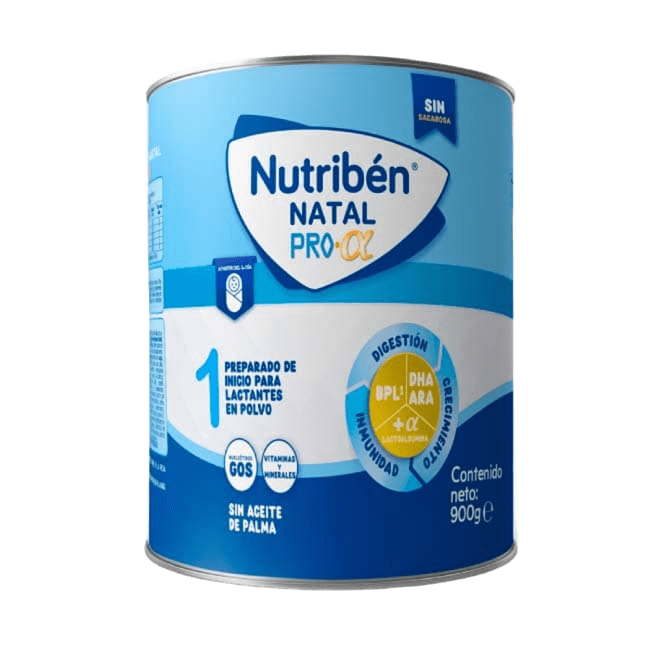 | Complete and balanced formula Enriched with DHA and ARA Contains nucleotides and prebiotics (GOS) Easy digestion Trusted brand | Availability in physical stores | |
3. Enfamil Premium Complete 1 Infant Milk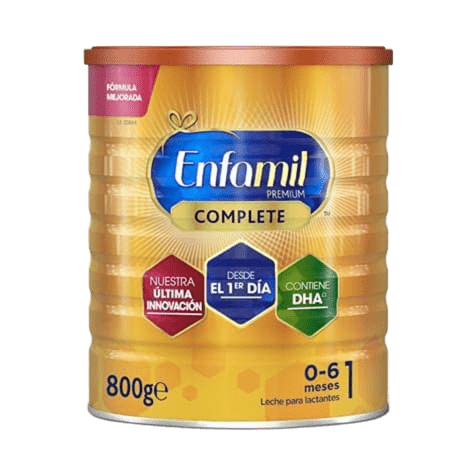 | High Content of DHA and ARA + Choline Solid Scientific Research Very Complete Nutritional Profile Good Acceptance | Not Specialized for Severe Digestive Problems Price in the Upper Range | |
4. Blemil Plus 1 Forte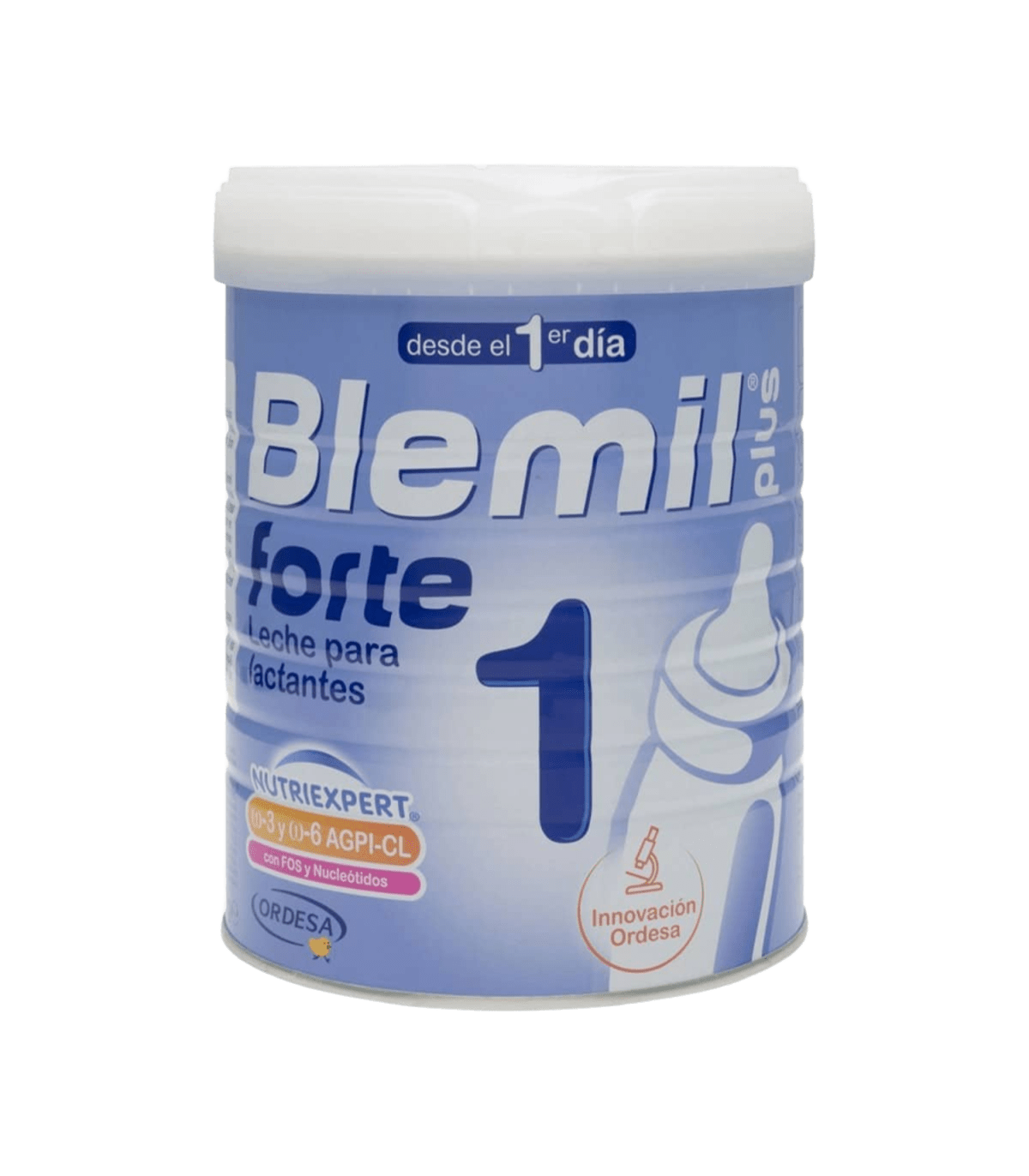 | Immunoprotective Formula Optimal Digestive Health Complete Nutrition Scientific Research | High Price Taste | |
5. Almirón ProFutura 1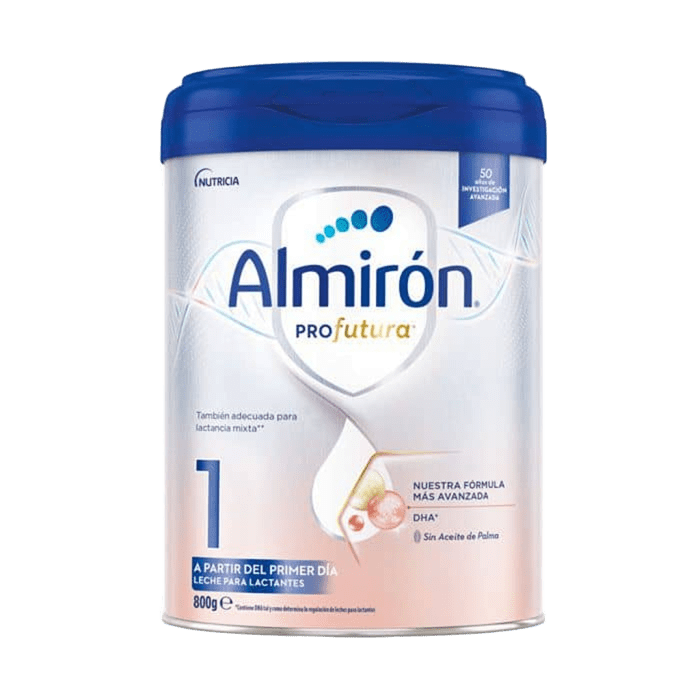 | Advanced Immune Support Improved Digestive Health No Palm Oil | Price Availability | |
1. Nestlé NAN Supreme Pro 1 Infant Milk | |
 | |
Contains HMOs (2'-FL and LNnT) Partially Hydrolyzed Proteins Higher Price Slightly Different Taste | |
Higher Price Slightly Different Taste | |
2. Nutribén Natal Pro Alfa 1 Infant Milk | |
 | |
Complete and balanced formula Enriched with DHA and ARA Contains nucleotides and prebiotics (GOS) Easy digestion Trusted brand | |
Availability in physical stores | |
3. Enfamil Premium Complete 1 Infant Milk | |
 | |
High Content of DHA and ARA + Choline Solid Scientific Research Very Complete Nutritional Profile Good Acceptance | |
Not Specialized for Severe Digestive Problems Price in the Upper Range | |
4. Blemil Plus 1 Forte | |
 | |
Immunoprotective Formula Optimal Digestive Health Complete Nutrition Scientific Research | |
High Price Taste | |
5. Almirón ProFutura 1 | |
 | |
Advanced Immune Support Improved Digestive Health No Palm Oil | |
Price Availability | |
How to Choose the Right Baby Formula for Your Baby: Buying Guide
Types of Baby Formula and Who They Are For
The infant formula market offers a variety that might seem complex at first, but it responds to different developmental stages and specific needs of babies. Knowing the main types is the first step towards a good choice.
Starter Formulas (Stage 1): Designed for newborns up to 6 months of age. These are the most complete and are formulated to be as similar as possible to breast milk in terms of their nutrient profile. They typically have a whey-to-casein protein ratio similar to that of breast milk. They are the default choice for most babies who are not exclusively breastfed.
Follow-on Formulas (Stage 2): Ideal for babies aged 6 to 12 months, when solid foods have already been introduced. Although they remain an important source of nutrients, their composition may vary slightly in terms of iron or other minerals, adapting to the needs of a more active and growing baby. They should not be used as the sole source of nutrition for infants under 6 months.
Growing-up Formulas (Stage 3): For children aged 12 months and older. They are often used as a supplement to an increasingly varied and solid diet. While some experts question their necessity if the child already has a balanced diet, they can be useful for ensuring an extra supply of vitamins and minerals.
Special Formulas: This category is crucial and must be indicated by a pediatrician. They include formulas for babies with lactose intolerance (lactose-free), formulas for cow's milk protein allergy (hydrolyzed or amino acid-based), anti-reflux formulas (thicker to prevent regurgitation), and formulas for premature babies or those with low birth weight. It is essential not to self-medicate or choose these types of formulas without medical advice. Each one is designed to address a specific condition, and their inappropriate use could be harmful.
Key Ingredients to Look For (and Avoid)
The ingredient list of an infant formula can be extensive and, at times, confusing. However, there are key components that are crucial for your baby's healthy development, as well as some you might prefer to avoid or discuss with your pediatrician.
DHA and ARA: These are omega-3 and omega-6 fatty acids, respectively, fundamental for brain and vision development. Most high-quality formulas include them, mimicking their presence in breast milk. Their inclusion has been a significant advancement in infant nutrition.
Prebiotics and Probiotics: They help maintain a healthy gut flora, which translates into better digestion and a stronger immune system. Ingredients like GOS (galactooligosaccharides) and FOS (fructooligosaccharides) are common examples of prebiotics. Some formulas contain specific probiotic strains that have shown digestive benefits.
Nucleotides: These are building blocks of DNA and RNA, important for cell growth and immune system development. Their presence in formula contributes to organ maturation and the baby's immune response.
Iron: Essential for preventing iron deficiency anemia, especially in non-breastfed babies. Ensure the formula contains an adequate amount of iron, adapted to your baby's stage.
Avoid Added Sugars: While lactose is the natural sugar in milk and is desirable, some formulas may contain added sugars like sucrose or corn syrup. It is preferable to opt for formulas that contain lactose as their primary carbohydrate, unless your baby has a specific intolerance.
Palm Oil: While it is a common fat source, some parents prefer to avoid it due to concerns that it may hinder calcium absorption in some babies. However, it is a debated topic, and many formulas contain it without issues. If in doubt, consult your pediatrician. The quality of ingredients is paramount for your little one's well-being.
Frequently Asked Questions about Baby Formula
Safe Preparation and Storage
Correct preparation and storage of infant formula are essential for your baby's health. Errors in this process can lead to bacterial contamination or inadequate nutrition. Following manufacturer instructions and safety recommendations is vital.
Hygiene: Always wash your hands with soap and water before handling bottles or formula. Sterilize bottles, nipples, and caps before first use, and then clean them thoroughly with hot, soapy water after each feeding. Consider using a sterilizer if you prefer, but thorough cleaning is often sufficient.
Water: Use potable water, preferably boiled and cooled to a lukewarm (not hot) temperature before mixing with formula. Non-sterile bottled water is not always the best option, unless otherwise advised by a doctor or local health authority. The ideal temperature is crucial: if it's too hot, it can destroy nutrients; if it's too cold, it may not dissolve the powder well.
Proportions: Always follow the manufacturer's instructions on the formula container for the exact amount of powder and water. Adding too much water dilutes nutrients, and adding too little can overload the baby's kidneys. Use the measuring scoop that comes with the container and level the powder carefully.
Mixing: Close the bottle tightly and shake gently until the powder is completely dissolved. Avoid vigorous shaking to prevent excessive air bubbles, which can cause gas in the baby.
Temperature: Before feeding your baby, check the formula's temperature by dripping a few drops on the inside of your wrist. It should feel lukewarm, not hot or cold.
Storage: Prepared formula should be consumed immediately. If not consumed, refrigerate immediately and use within 24 hours. Never save leftover formula from a feeding, as the baby's saliva can quickly contaminate it. Unopened powder should be stored in a cool, dry place, away from direct sunlight. Once opened, consume the contents within the time specified by the manufacturer (generally 3-4 weeks).
How to Tell if the Formula is Agreeing with Your Baby
IMAGEN_R Observing your baby is key to knowing if the infant formula you're giving them is agreeing with them. Their digestion, mood, and growth are important indicators. However, it's crucial to distinguish between normal variations and signs that might indicate the formula isn't right for them.
Adequate Weight Gain: One of the most important indicators is that the baby is gaining weight consistently and healthily, as expected by the pediatrician. Good growth is a sign that they are absorbing nutrients well.
Stools: Stools of formula-fed babies are usually more bulky, firmer, and lighter in color (yellow-brown) than those of breastfed babies. It's normal for them to have a bowel movement once or several times a day, or even every other day. If stools are very hard, dry, or contain blood, consult your pediatrician. The presence of mucus or a very strong odor could also be an alarm signal.
Regurgitation: It's normal for babies to spit up small amounts of milk after feedings. This is usually due to the immaturity of their digestive system. However, if regurgitation is excessive, frequent, projectile, or if the baby seems uncomfortable or isn't gaining weight, it could be a sign of reflux or intolerance, and a doctor should be consulted.
Gas and Colic: All babies have gas, but excessive gas, abdominal distension, inconsolable crying, and irritability, especially after feedings, could indicate that the formula is causing digestive discomfort. Some formulas are designed to reduce gas, or your pediatrician might suggest a change.
Rashes or Redness: Rashes around the mouth, on the face, or body, or eczema, could be signs of an allergic reaction to cow's milk protein. In these cases, a hypoallergenic formula is needed under medical supervision. Any persistent sign of discomfort or adverse reaction should be evaluated by a professional.
Why Trust Our Baby Formula Guide
Selection Methodology and Evaluation Criteria
IMAGEN_R To compile our list of the 5 best baby formulas, we haven't limited ourselves to the highest-selling products. We have implemented an exhaustive selection methodology that combines quantitative data with qualitative analysis, ensuring that the recommendations are as comprehensive and useful as possible for parents. Our process is based on several fundamental pillars to guarantee the validity of our guide.
Sales Volume and Popularity: While not the sole factor, the fact that an infant formula is one of the best-selling indicates wide market acceptance and the trust of thousands of families. We analyze sales data from major online platforms to identify trends and the most in-demand products over the last year. High turnover and demand suggest that the formula is well-perceived by consumers.
User Reviews and Ratings: Beyond sales, the real experiences of other parents are invaluable. We review thousands of comments and ratings on specialized websites, parenting forums, and e-commerce platforms. We pay special attention to common patterns in opinions regarding baby's acceptance, ease of digestion, reduction of colic or gas, and overall satisfaction. Consistent positive ratings are a key indicator of perceived quality and formula performance.
Brand Reputation and Track Record: We prioritize recognized brands with a long history in manufacturing baby products. These companies typically have rigorous quality control and are backed by continuous scientific research. Brands with decades of experience in infant nutrition are often synonymous with trust and safety, investing in R&D to constantly improve their formulations.
Nutritional Composition: While we are not medical professionals, we analyze the nutritional information provided by manufacturers to ensure that formulas meet current regulatory standards for each stage (Stage 1, 2, etc.) and include key ingredients such as DHA/ARA, prebiotics/probiotics, nucleotides, and an adequate balance of proteins, fats, and carbohydrates. We look for formulas that strive to approach the nutritional profile of breast milk. The science behind the formula is crucial for baby's development.
Availability and Accessibility: We select products that are easily accessible to most families, both online and in physical stores. An excellent formula is not very useful if it is difficult to find or if its availability is inconsistent. This also contributes to the continuity of the baby's feeding.
The Importance of Pediatric Consultation
While this guide offers valuable information to help you explore baby formula options, we want to emphasize a fundamental message: consultation with your pediatrician is irreplaceable. Every baby is unique, with their own health needs, potential allergies or sensitivities, and a particular medical history that only a professional can adequately assess.
Individualized Evaluation: A pediatrician can perform a complete assessment of your baby's health, birth history, growth pattern, and any symptoms or concerns you may have. Based on this evaluation, they can recommend the most appropriate formula, which could be a standard formula or a special formula designed for specific conditions such as reflux, protein allergies, or lactose intolerance. Personalized recommendation is the most important.
Diagnosis of Sensitivities: If your baby exhibits symptoms such as skin rashes, severe colic, excessive gas, persistent diarrhea or constipation, or excessive regurgitation, the pediatrician can determine if these symptoms are formula-related and suggest specific changes. Do not attempt to diagnose or change formula on your own if you suspect an allergy or intolerance; this should be done under medical supervision to avoid nutritional deficiencies or worsening of symptoms.
Growth Monitoring: The pediatrician will monitor your baby's growth and development during routine visits, ensuring that the formula they receive is supporting optimal development. They will also guide you on the introduction of solids and the transition to different formula stages. Their expertise is fundamental to ensuring that feeding decisions are aligned with your child's health needs. Your pediatrician is your best ally in your baby's nutrition.
